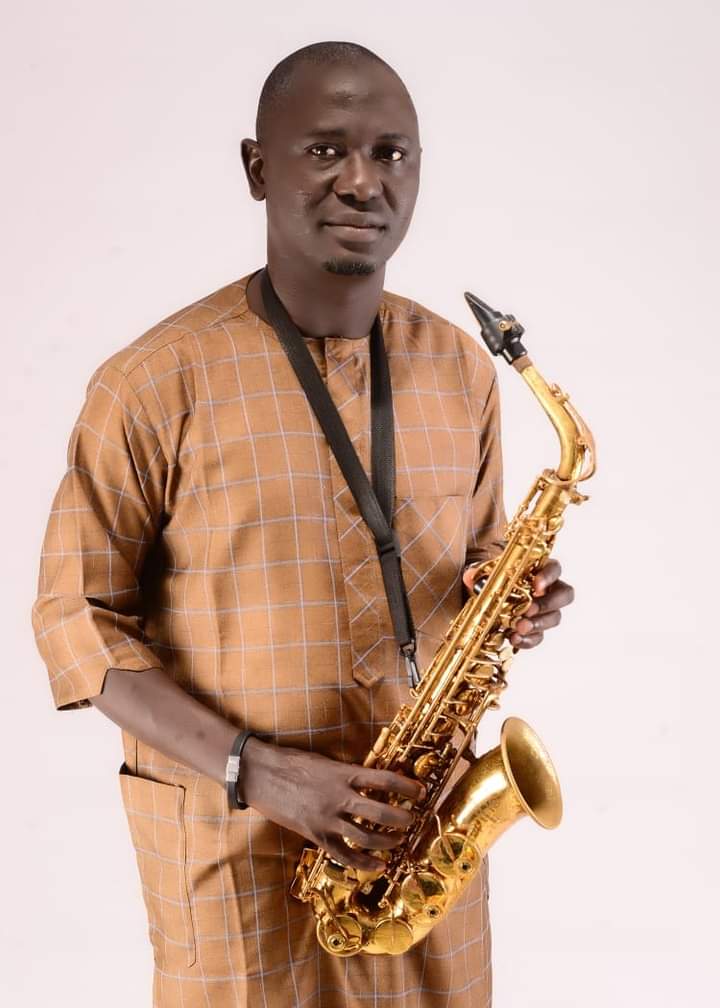
September 5, 2023.
Music has contributed immensely to human development. Little wonder William Shakespeare said: “if music be the food of love, then play on” and little wonder Fredrich Nietzsche said: “without music, life will be a mistake”. September 2, 2023 was the wedding day for one of my younger ones, Bola Mustapha, the daughter of our king, the Ońjo of Òkehò, HRM, Oba Rafiu Oṣùọlálé Mustapha (Adéìtáń 11). I got to Òkehò so early and appeared at the palace where the wedding took place. The musician who played music at the hall thrilled me so much that, though I didn’t want to dance, but I was forced to do some few steps in the spirit of what our people called “àìlèjó ma mì. Àìlèjó màá yan. Àìlèjó ma gb’ẹ́sẹ̀ kan r’òkè, ma mì, ma mì, má jó gbẹdẹmukẹ”. The above ancient song used to be a way to make excuse or to escape for someone who was not good in the art of dancing, but was just shaking a little to the right and left without any particular dance steps or style to fulfill all righteousness. I’m not sure this song still has a place nowadays that fast music has influence crazy dance steps and styles from among our youths. But, after a little struggle to take some dance steps because I’m not really a good dancer, I had to ask someone around about the musician who has taken charge of the entire atmosphere with his mastery of what he was doing. It was obvious the musician was at home with his talent and he was just doing what he knew how to do in the best way unexpected of a calm-looking person like him. My assessment of his calm mien can be likened to the description of a person who will not spill or spit out the water that was kept in his mouth no matter how long it takes. From what the person told me, I gathered that the musician is a son of the soil. The guy I asked from even told me that he is the son of “Basiru Ọ̀láwùmí, the drummer”. Who did not know “Basiru Ọ̀láwùmí, the drummer” in Okeho during our growing up in period? I don’t know his real compound, but I knew him to be an area brother who used come from Ajélàńwa area. “Bàṣírù Ọ̀láwùmí” tried to carve a nitch for himself among the talking-drum drummers in Òkehò because he added what, in modern day parlance, the youths will refer to as “kàrámọ” to his prodession. Many of us knew his style and the kind of sound he used to deliver with his “ìyá ìlù” talking drum. Besides this, “Ọ̀láwùmí” was popular among the youths because he was also a youngster and, what endeared him to the youths, was his love for football. A strong supporter of the town team that later metamorphosed into “Olófin Football Club”, “Ọ̀láwùmí” used to follow his team to Awóyẹmí Commercial High School” and “First Baptist Primary School” which were the popular fields of play in those days and he used to also beat his drum to and from even the outside locations whenever the matches were outside engagements. Even though “Ọ̀láwùmí” was not our supporter because I, my friends Káyọ̀dé Ògúnbọ̀de (a.k.a Jassana) and Ibrahim Kazeem (a.k.a Ethiopia) who came from the same area with”Ọ̀láwùmí” because we belonged to” Jet Bombers Football Club, he, being our area brother, loved and respected us so much and used to accord us our respect and we loved him too. Now, hearing that it is “Ọ̀láwùmí’s” son who was playing such a powerful music for us during the last wedding ceremony jerked up my interest to see what I can do to promote him. And, as you can bear witness, this is exactly what I’m doing with this long article and I want you to bear with me. But, before I go deeper into my objective to write this promotional article, permit me to say some few things about my love for music, especially Fújì Music. Fújì music was the reigning genre when I was a teenager living at Ilé Abẹsẹ̀, Ògán, Òkehò where we were living since I was four years old with my parents and young ones. Ilé Abẹsẹ̀ was opposite Ilé Ọlófin, Ìjò, Òkehò. It was Ìlerò Road that parted the two ancient communities that formed the confederacy which produced the town called Òkehò in the olden days. We should not forget that, historically, there was no town called Òkehò before Ońjo Aríléṣiré summoned a meeting of the eleven settlements – Ìjò, Ọgán, Bodè, Pàmọ̀, Ìsàlẹ̀-Alúbọ́, Òlèlè, Gbọ́njẹ̀, Ìṣìà, Ìmọbà, Òkèògún and Ìṣẹmi – to come together to fight their common enemies who were the Fulani Jihadists and Dahomey Marauders. However, in the course of time, beyond the original eleven settlements and people from that ancient time till today, we have had other people who came to join after Òkehò was born that have become big communities within Òkehò and they havr their community heads too. For example, communities like Aṣín, Ṣàngótẹ̀, Yàba, Ajélàńwá, Ògbíntẹ̀, Àláàpá, Ògbíntẹ̀, Láfiíhàn/Barracks, Ìlúpéjú, Kárà, Mẹ́ṣẹ̀óle, Ìfẹ́lódùn, Aṣàkà and many others that I don’t know exist came to join the eleven towns to add to Òkeho town. In a nutshell, today, Òkehò has become a very big town whose size and population is enough to be a Local Government on its own. What Òkehò is lacking is nothing but modern day facilities that will convert it to status of a city and I pray God will help us to facilitate some of such facilities during our time on earth. Still on my love for Fújì music, my interest was spurred through the inspiration I used to get from the music of Síkírù Àyìndé Barrister (a.k.a “Alhaji Agba”). That time, one of our area brothers, Rafiu Alájéòba (a.k.a Bàbá Afis), who has passed on to glory some years ago, relocated from Lagos to open a music recording shop at Ilé Òlọ́fin. So, there was no day I was not going to be treated to “Alhaji Agba” Fújì either his life plays or his new releases. Till today, I still sing along with “Alhaji Agba” whenever I hear “Ẹ jẹ̀ k’Áyìndé Gbáyé”, “Àbọ̀dé Mecca”, “Ijó Olómọ”, “Family Planning”, “Fújì Gabbage”, “Orí mi èwo ni nṣe”, “Democracy”, “Current Affairs” “Barry Wonder”, “Òkìkí”, “Destiny”, “Military” and many other ones. In addition, another thing that spurred my interest for Fuji Music was the unhealthy rivalry among the major players in the Fuji industry. As a young teenager, I followed keenly with all sense of seriousness the competition which led to series of open musical confrontations between “Síkírù Àyìndé Barrister” and “Kóláwòlé Kollington (a.k.a “Baba Alátíká” or “Kẹ́bé ń Kwara”. I knew the different young Fújì musicians who pitched their tents with the main players when the “fight” was intense and hot. And, I also remember the dimension of Sàláwà Àbẹ̀ní to the fracas and I can’t forget how vulgar Alhaji Kolliington Àyìnlá who was the husband of Sàláwà was when he sang “ìṣù dúdú n’iṣu àwé ò, ó dúdú perí”! That was the level of moral rottenness they took Fújì music to then. I knew when the young Wasiu Àyìndé who was one of the disciples of Síkírù Àyìndé Barrister came up with “Tàlà 84” that sold him to the Nigerian market. At that time Wasiu Àyìndé didn’t know how to pronounce “R” or “r” and it surprised me when I noticed that he has overcome that. Later, we had other Fújì artistes like Adéwálé Àyúbà (a.k.a Bonsue Fújì or Mr. Johnson), Abass Àkàndé (a.k.a Òbẹ́sèré or Ọmọrápálá), Rashidi Àkàndé and many others that I don’t remember their names now. Pàsúmà Àlàbí, Òṣùpá Saheed, Táyé Currency and few others who are on the scene of Fújì music today came recently and they are still on the stage. Like Síkírù Àyìndé Barrister and Kọ́láwọlé Kollington Àyìnlà, Pàsúmà and Òṣùpá have started to confront each other with fans pitching their tents. I can see that such rivalry have become an integral part of music in Nigeria because, in the past, we have had Ebenezer Obey Fábíyìí and King Sunny Adé as well as Haruna Ìṣọ̀lá and Àyìnlà Ọmọwúrà engaged in the same open rivalry. Now, let me come back home to Òkehò to recall the Indigenous musicians who did their best to sustain the local music industry in the course of history. Many of us will recall the likes of Ìbídòkun with a unique Àpàlà song; Àmùro and Jágùà with Sẹ̀kẹ̀rẹ̀ Dùndún Talking Drum; Àwọ̀sọ́lọrọ with wéré/Ajísàrì song; Jimoh Yíyọ Ẹkùn t’ojo kọ̀ with his wéré/Ajísàrì song; Amọ́lẹ́gbẹ́ kò n’íyàwó and Múrí Sẹ́lí with their Sẹ́lí song and Bánmóré Àjàní with his Àpàlà song. Later, between 1979 and 1981, some of our young ones ventured into Fújì music. One of us at Òkehò/Ìgànná Grammar School (OIGS) began to trouble us in the school with his own talent for Fújì music. His name was Láti Alárápé (a.k.a Làtí Fújì) who later pursued his music career till he recorded some breakthrough before he left this mother earth some two or three years ago. In addition to Láti Fújì, I also sponsored one of my friends who was very talented to start his Fújì music group in 1982. His name is Fatai Fújì (a.k.a Ṣẹ̀ṣẹ́mà). Ṣẹ̀ṣẹ́mà was also an alumnus of OIGS and he started the way Láti Fújì started by demonstrating his music talent among us during the school hours. I saw a future in him and, even though, we were within the same age bracket then, I encouraged him with all I had. Our first outing at the Town Hall was a big party. I still remember the brownish coloured àǹkárá cloth we bought from my mother for the anniversary many of which were collected on credit that we never paid again.During the same perioid, another Fújì musician I remember was Rashidi Pẹ́lẹ̀, my blood brother and friend. Ràṣídì Pẹ̀lẹ̀ dropped Fújì for school and he is today one of the lawyers that Òkehò has produced.Another Fújì musician was my cousin, Raufu Raji (a.k.a Àtúmà Fújì now late) with his unique style of Fújì music that I cannot classify. But, he also had his fans in those days. Finally, among the young people who ventured into Fuji music when we were growing up was Ẹ̀là Àbàtà Fújì. I don’t know his real name, but I remember he is from Ilé Amájá in Ìṣìà, Òkehò. From his performance, it was obvious that Ẹ̀là Àbàtà was not a talented or gifted musician like some other musicians. If for anything, my rating of Ẹ̀là Àbàtà then was a clown who loved music, but music did not love him. He had no good voice or charisma for music and he was so uncouth as a musician. He came up suddenly and went down suddenly! I remember the day of Ẹ̀là Àbàtà’s first outing at the Town Hall and the kind of songs he sang that day. The songs were so funny that they became popular even more than the musician himself long after we have forgotten him. As I said, I’m not sure I can recognise him if we meet today. But, I cannot forget songs like “Ẹ́lábáta la, Ẹ̀làbàtà la, Ẹ̀làbàtà tó ń jẹ́ Làmídì, ọmọ ìyá onírú o. Ìyá mi ń ta’rú ọmọ Amájá…” that he rendered then. And, I can also remember another one that he sang to praise a popular fashion designer from Bodè area called “Làtí Tailor”. When Ẹ̀là Àbàtà saw him from a far distance in the hall that day of his anniversary, he burst into praise-singing by saying: “Làtí Tailor ló ń bọ̀ l’ókè yí, ẹ wò bó ṣe dì bí alákọ̀wé. Àṣé Tailor tiẹ̀ ni”. Each time I remember this song I always can’t place it to either be a praise or an insult. That was quintessence Ẹ̀là Àbàtà for you and he was also part of the growth of music industry in Òkehò. I should not forget to mention that the following day of the outing, people said they saw Ẹ̀là Àbàtà behind Agbégilódò má bẹ̀rú èpè lorry which was the popular lorry that our people were using to carry timbers from the bush in those days. What we learnt was responsible for his quick resumption to work was that he collected cloths on credit for all his band members from the cloth seller and, because the previous day outing was a flop, he had to smart up to pay up. That was one thing I picked from Ẹ̀là Àbàtà that made me respect him in the whole scenario. At this point, I stand to be corrected, but, I think, after Ẹ̀là Àbàtà in the early 80s through mid 80s, there has been a great lull or lacuna in the music industry in Òkehò. If you remember any musician that filled in the gap between the 80s and this time when we begin to have some young musicians springing up, you can help me with their names. Recently, I’m aware there is one of our young musicians who has patterned his song after “Ìbídòkun”. I even learnt the young man is “Ìbídòkún’s” son, but I don’t know how true this is.Then, I also noticed a light-complexioned slim young man with Oǹdó mark (if I’m not mistaken) who is a Fújì musician. Those who know the young guy I’m talking about should help me with his name.Now came September 3, 2023 at the wedding of our king’s daughter at the palace of Ońjo of Òkehò where I met Mr. Adébáyọ̀, Ọláwùmí’s son whose stage name is “Maximum Fujician” who has struck me as a serious-minded and promising Fújì maestro. That day, I didn’t see the face of the young man who was dishing out some sweet danceable songs with a good Fuji voice that one cannot really place whose voice model he took after between Alhaji Àgbà and Kwam 1 because I was sitting a bit far from where the stage was.The brief introduction that the musician was (is) Ọ̀láwùmí’s son by Rótìmí Ògúnbọdé, struck a cord within me and the penchant and passion for Fújì music was rekindled or rejuvenated. I rose up to my feet, took a few dancing steps and moved closed to the stage to capture the musician through my video camera. And, truly speaking, I enjoyed every bit of “Maximum Fujician” music and I know you will also enjoy him if you listen to some of his video clips that I’m going to attach to this article.Born to a drummer who was his primary source of inspiration for music, Mùnírù Adébáyò Bàṣírù is a native of Òkehò from Ajélàńwá area. He had both his primary and secondary education in Òkehò between 1990 and 2002 after which he proceeded to Tai Solarin University where he obtained a degree in Social Science and Education. When I asked about what inspired Mr. Mùnírù Adébáyọ̀ into Fújì music, his response was: *”Music is in the blood right from birth been born from lineage of Onilu. I discovered more of my self when I traveled to Lagos after my secondary school education to seek for unskilled job pending the time of my admission into higher institution of learning.* *During this time my Uncle Sufian Balogun whom I stayed with introduced me to Alága Ìjoòkó and Alága Ìdúró (Engagement Anchors). it was this job that opened my eyes to my potential.* *My first outing was in Lagos after my NYSC when, one of my professors who thought me during my undergraduate paid me for a live play”.* I went further to ask about his mentors and role models and the MD/CEO of “Maximum Fujician, has this to say: *”My role models are many. I grow up to observe Amuro and Jaguar Sekere group, Inuolaji Ibidokun, Awosoloro, Jimoh Yiyo Ekun, Ajani Banmore and Lateef Alarape Fuji; but, frankly, Alhaji Wasiu Ayinde is the person am looking after”.* When I asked him about his future projections, targets and ambitions, Mr. Maximum Fujician, said that he wants people to accord the same respect and reference to his song as they have done to Haruna Ishola, Yusuf Olatunji, Ayinla omowura and Sikiru Ayinde Barrister in the nearest future and, as a lover of Fújì music and, because this one is son of Òkèògùn land, I pray God will answer his prayer sooner than he imagined. It is not a bad thing to have a great musician to come from our region like they are coming from other regions in the Yorùbá land. Finally, a young promising Fuji musician at his burgeoning stage who has traversed different parts of the Southwest, Mùnírù Adébáyọ̀ will also like to be an internationally renowned musician one day soon. Faced with a lot of challenges ranging from instability of band boys, problems of area boys whose mission is nothing but to intimidate and extort money after every show and some attitudes of some of his clients who think the best way is to shortpay or shortchange the musician, I want to say that all these must be part of growing up inevitable experiences in the industry. They will soon become things of the past with new challenges coming up because the life we live in operates with the philosophy of “new level, new devil”. My word of advice to Mùnírù Adébàyọ́ is that he should guide his talent with all seriousness and jealousy because talents have ways of attracting good and bad. Mùnírù, I advise that you keep your vision ahead of you and always have focus of where you are going. My prayer for you is that, very soon, I will see you at the top. To my reader, sorry to have taken much of your precious time. But, this really worth it. My advice to all of us is that we should encourag this young music entertainer, Mr. Maximum Fujician, with all we have at our disposals. Let’s start patronising him by inviting him to come and play for us during our social parties like naming, house dedication, business breakthrough, coronation, burial of the aged and so on and so forth. With this, we will push him into limelight to experience breakthrough in his chosen profession. Please, find below some of the video clips of his life shows. Thank you and God bless you real good.


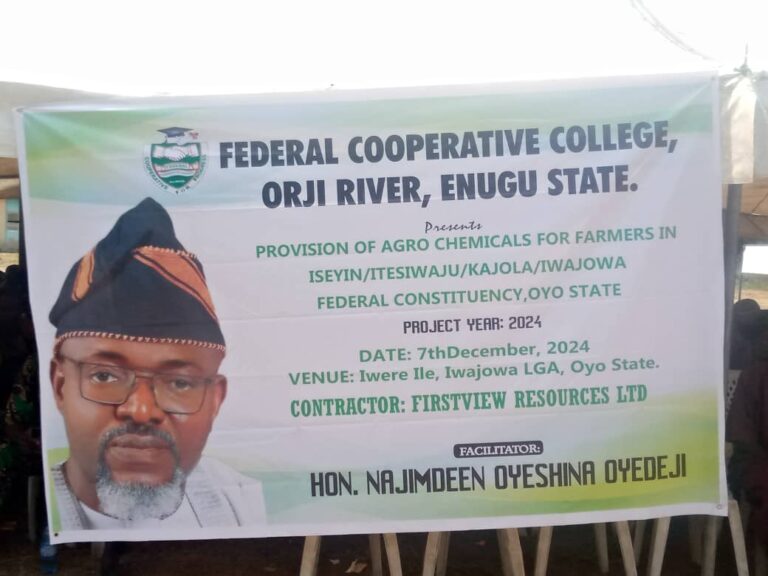
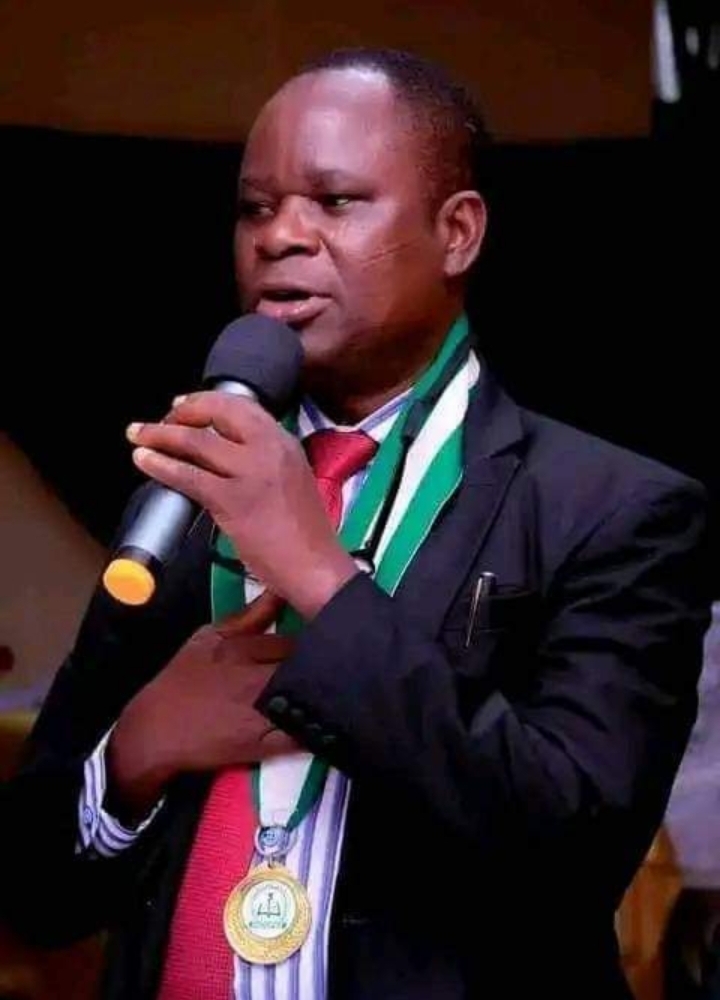
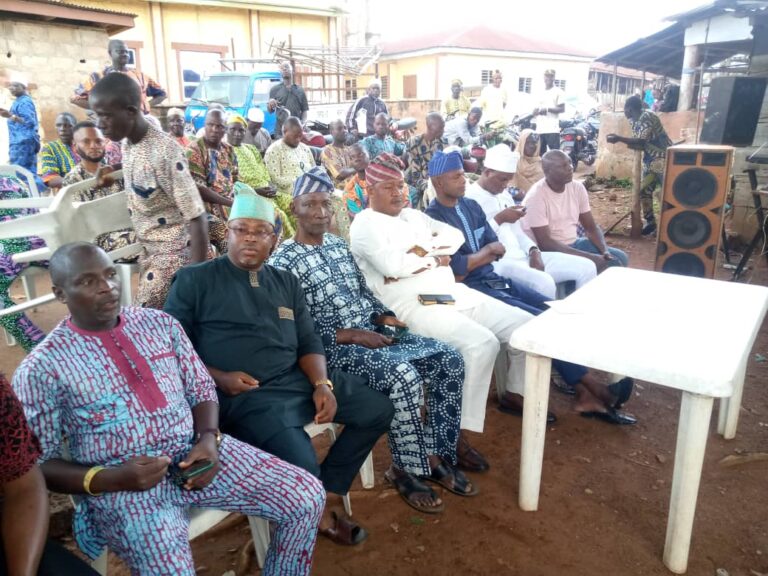
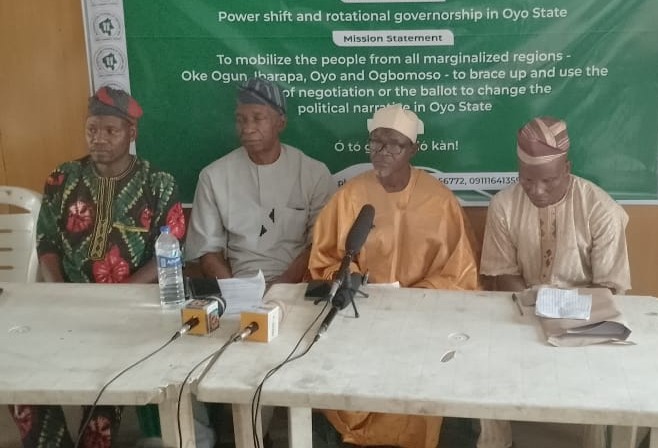
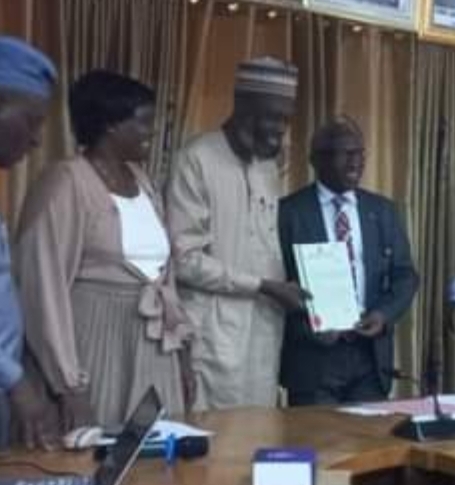
You did not remember Gèlèdé Okeho